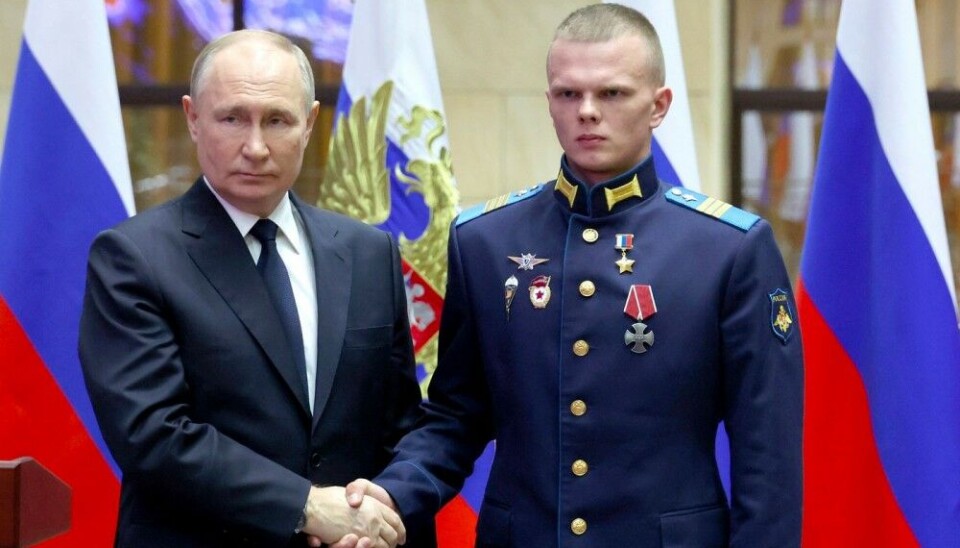
Who is 'Hero of Russia' Yevgeny Supakov?
I love to ride snowmobile, the 25 year old soldier from the remote Arctic region of Tazov writes on his social media profile. Yevgeny Supakov is one of several hundred men from far northern Russian villages fighting in Ukraine. This week, he was declared 'Hero of Russia' by Vladimir Putin.
“Honorable comrades, you are awarded the high rank of Hero of Russia for your courageous execution of military tasks,” Putin said in a greeting to nine warriors with brutal fighting experience from occupied parts of Ukraine.
The ceremony took place in the Center for National Defence Management, where Putin that same day delivered his annual speech to the top brass of the Defence Ministry. He was also shown around in an exhibition hall where new Russian weapons, including several models of drones, were on display.
With a stern face, Sergeant Yevgeny Supakov marched up to Putin who stitched the Golden Star medal to his uniform jacket.
According to the Kremlin, the sergeant has distinguished himself in battle.
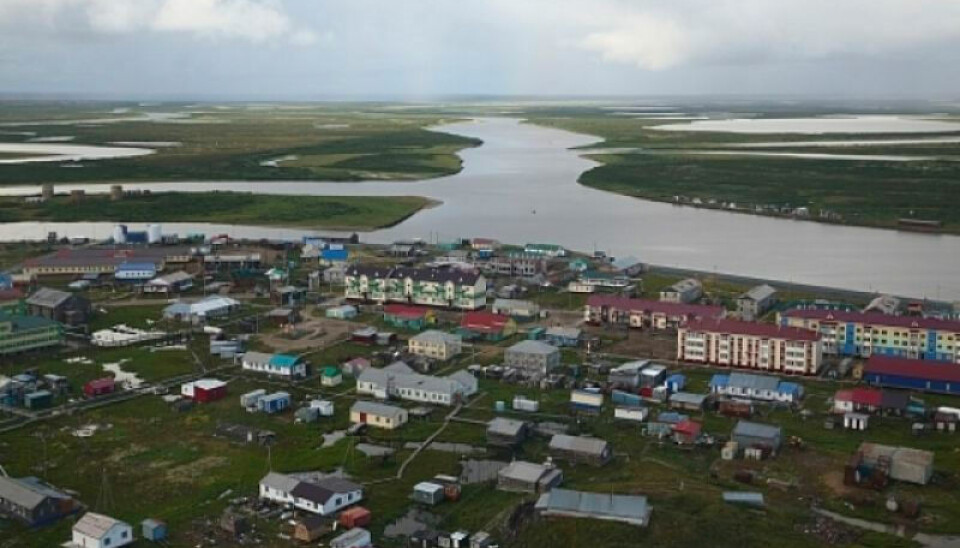
It is not clear in which part of occupied Ukraine Supakov has been fighting, nor the details of his military achievements, but judging from his uniform he belongs to the Russian Airborne Troops.
The background of the young man, however, is far from Moscow and the killing fields of Ukraine.
Yevgeny Supakov grew up in the far northern parts of the Russian Arctic. His hometown is Tazov, the administrative center in the Tazov region. He studied in the local elementary school and is likely to have spent his childhood playing on the wide stretches of tundra that surround the small town.
In school archives, he appears as one of the best students.
“I like to ride Buran,” the soldier writes on his VK social media page. Buran is the Russian brand of snowmobiles. He also appears as a keen listener of music and player of computer games.
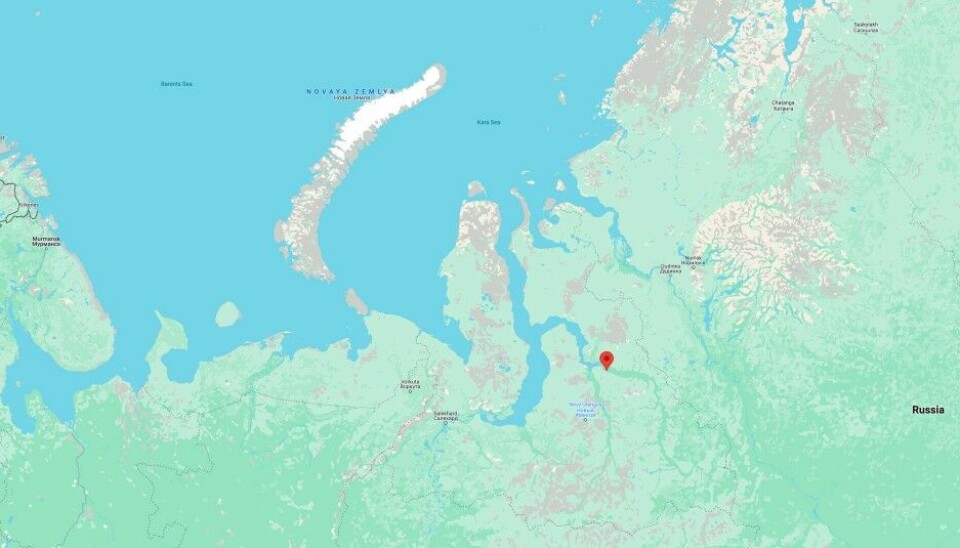
According to a local newspaper, Supakov signed a contract with the Armed Forces immediately following his conscription period. His parents say they knew little about his participation in the war until he was on the actual battlefield.
Recently, he was back in Tazov on a brief leave.
Yevgeny Supakov is one of hundreds of northerners that are taking part in Russia’s bloody onslaught on the neighbouring country. Alone from the Tazov area, the number of warriors is significant.
The social media of the local municipality regularly posts stories that encourage local men to sign up for service, and town mayor Viktor Yugay often takes part in patriotic events and praises warriors.
Only few hours after Yevgeny Supakov was awarded his medal in Moscow, Yugay officially opened a new war memorial in Tazov.
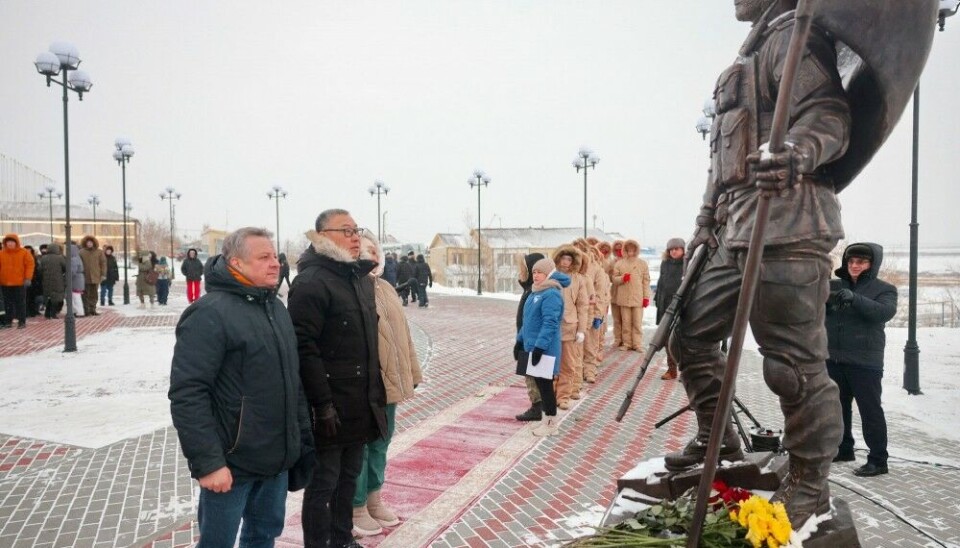
“Let this art composition be a symbol of the resilient power of will, bravery and courage of the soldiers that at all times have stood for the protection of our Motherland and the ones that today protect our land and its freedom and independence,” Yugay said in the ceremony.
According to the local mayor, there are “many brave protectors of the motherland from our municipality.”
Recently, the mayor met one of them. Junior Sergeant Ivan Pugunguy is warrior in Ukraine and was this year awarded the Russian Order of Bravery.
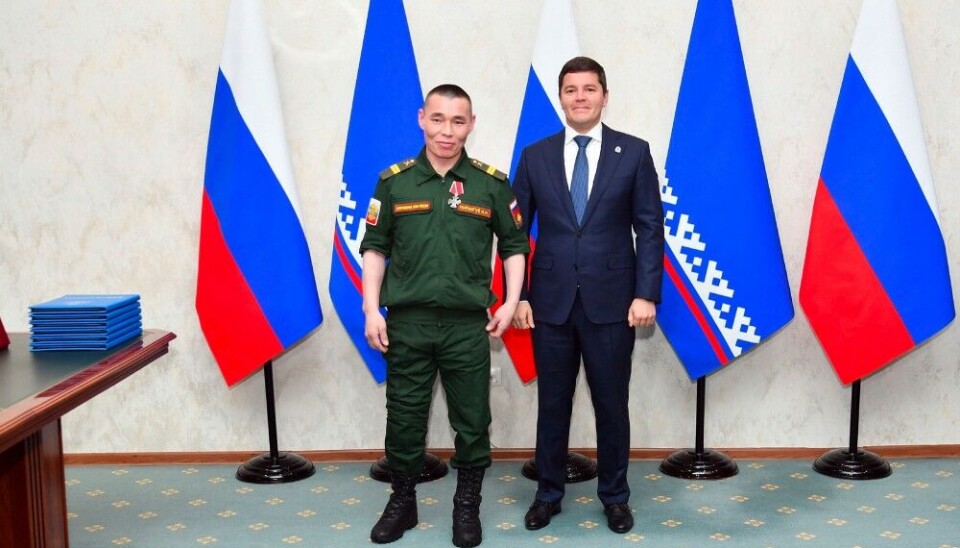
The remote Arctic region also has big losses in the war. Judging from from a survey of killed soldiers, there are at least six men from the Tazov area that have been killed in Putin’s war.
Among them is Robert Salinder, a 26-years old man who was reported killed in early September this year. On the 11th of December, Tazov Mayor Yugay met Salinder’s widow.
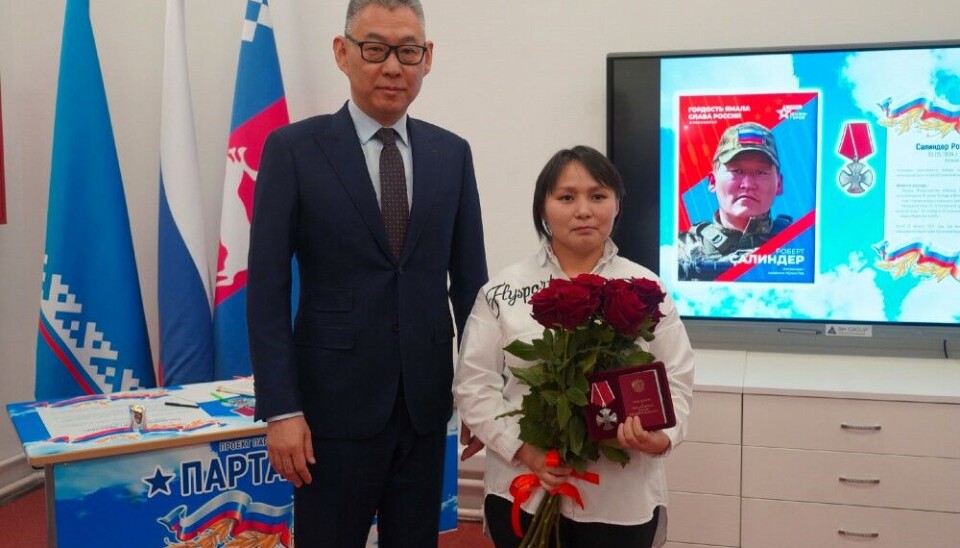
Several more men of the Salinder family are reported killed. In addition to Robert Salinder are at least five men all carrying the surname Salinder on the death lists.
Judging from available data, men from remote regions and villages are over-represented in the statistics of killed soldiers.
Symptomatically, the registry that by early September 2023 included more than 31,000 names has only 120 people from the City of Moscow. Meanwhile, the region of Arkhangelsk has 247 names.
The same applies to the respective region where a major part of the ones killed come not from the regional capitals, but from villages and small towns.
In the Yamal-Nenets Autonomous Okrug, only ten of the 70 names recorded came from regional capital Salekhard.















